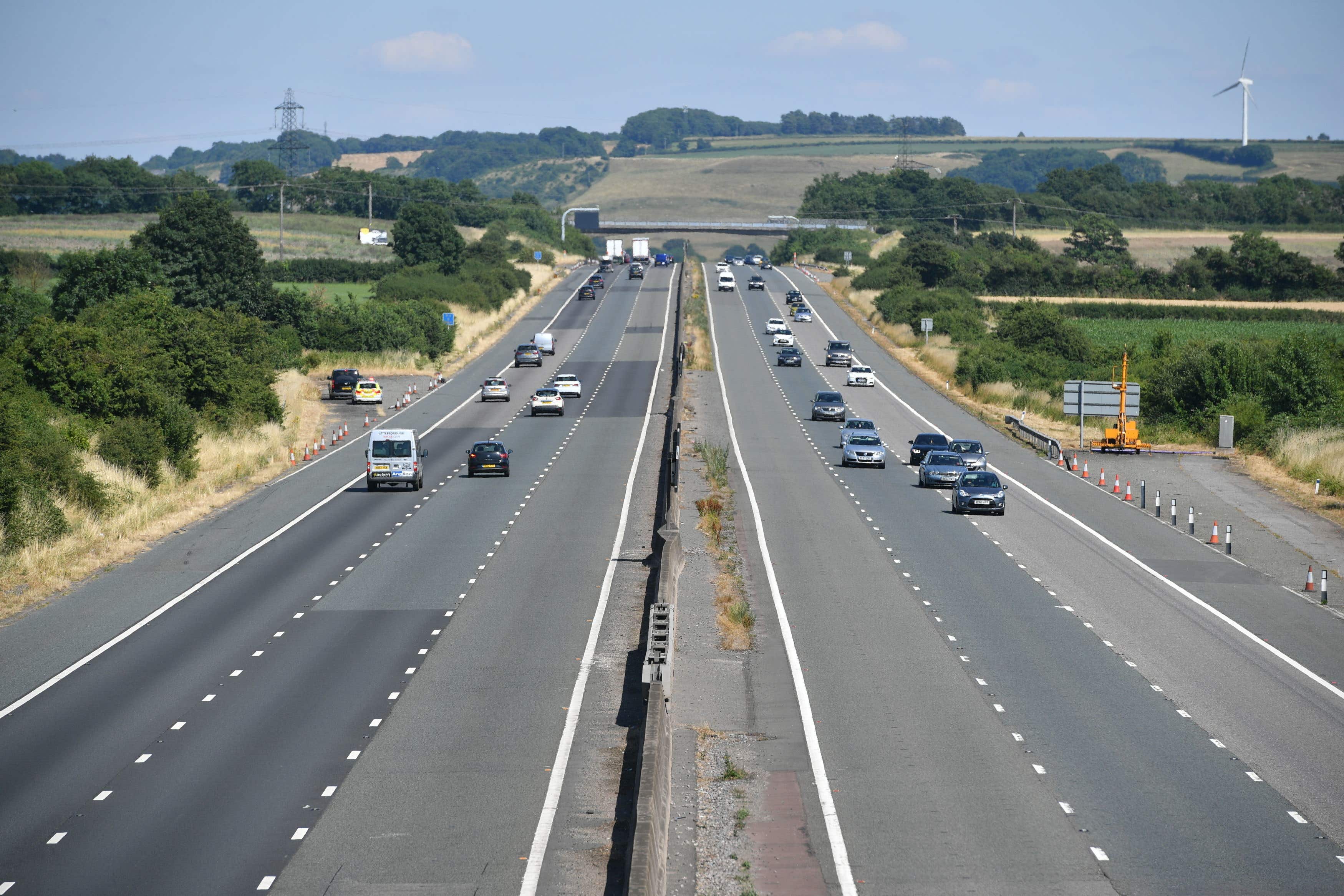Car insurance experts reveal the one move you can make to cut hundreds from your bill
Customers are losing hundreds of pounds a year by paying for their insurance monthly, and it’s getting worse
Your support helps us to tell the story
From reproductive rights to climate change to Big Tech, The Independent is on the ground when the story is developing. Whether it's investigating the financials of Elon Musk's pro-Trump PAC or producing our latest documentary, 'The A Word', which shines a light on the American women fighting for reproductive rights, we know how important it is to parse out the facts from the messaging.
At such a critical moment in US history, we need reporters on the ground. Your donation allows us to keep sending journalists to speak to both sides of the story.
The Independent is trusted by Americans across the entire political spectrum. And unlike many other quality news outlets, we choose not to lock Americans out of our reporting and analysis with paywalls. We believe quality journalism should be available to everyone, paid for by those who can afford it.
Your support makes all the difference.Research group Which? has revealed why some drivers are paying hundreds more for their car insurance.
The consumer group used data from comparison website Go.Compare to find the average difference between prices paid by annual and monthly customers between December 2018 and September 2023.
Motor insurance customers who buy cover monthly can end up paying hundreds of pounds more than those who pay for policies annually – and the gap appears to be growing in cash terms.

In September 2023, those paying monthly for an annual policy faced paying around £309 more on average over the year than those paying in one go, according to the research.
The average annual cost of monthly payments was £892, while the cost of paying annually in one go was £583.
In September 2022, the average gap was £251 (£738 for monthly payments versus £487 for paying annually).
In December 2018, the typical gap was £207 (£460 for paying annually versus £667 for paying monthly).
Younger motorists, who often pay the highest premiums, may be more likely to pay monthly, Which? said.
The consumer group said the Financial Conduct Authority (FCA) should set out an action plan, including assessing how much it costs for firms to provide credit on premiums, and naming and shaming those charging the highest rates.
The FCA should take action against any firms that are charging monthly customers excessive interest rates by June 2024, Which? urged.
Rocio Concha, Which? director of policy and advocacy, said: “Car insurance is a legal requirement for motorists – and yet those who can’t afford to pay in one go annually are often being penalised through unjustifiably high interest rates on their monthly repayments.
“That isn’t right – and it’s now up to the financial regulator to outline an action plan to tackle the unfair costs of paying monthly for insurance.
“The FCA must monitor the issue closely, publishing an analysis every six months of firms’ rates, naming and shaming the worst providers.
“The regulator should also assess how much it costs firms to provide premium credit and shouldn’t hesitate to take action against providers charging monthly customers excessive interest rates.”

A spokesperson for the Association of British Insurers (ABI) said: “Our members are acutely aware of the pressures many households are currently facing and the impact recent increases in premiums – due to significant cost pressures outside of their control – are having on motorists.
“Paying premiums by monthly instalments is one option motorists have to manage their budgets. Premium finance is one of a number of topics we continue to discuss with our members and the FCA when considering possible measures that could help customers best manage their insurance costs.
“More widely, we’re working with industry bodies such as the Society of Motor Manufacturers and Traders (SMMT) and Thatcham Research to understand areas of shared concern between manufacturers and motor insurers, such as vehicle safety and security.”
Other ways to keep the cost of car insurance down
These handy tips could help you to keep the cost of your cover under control
Anthony Forchione, senior insurance analyst at consumer help website MoneySavingExpert, says that planning and gathering various quotes can prove worthwhile.
He says: “The big main rule is to not auto-renew until you have checked if you can get the right policy cheaper, especially as many policies are automatically set up to auto-renew.”
Checking you’re registered at the right address to vote may not be the first thing that springs to mind when taking out car insurance, but Forchione explains why this could be key.
“First off, make sure you are on the electoral roll at the correct address,” he says.
“If not, the insurer’s fraud system may think it is not a legitimate enquiry and quote a higher price, or may not even provide a quote.
“Choosing the right time to look for car insurance is key, too. Analysis has shown that 23 days ahead of when your car insurance needs to start is usually the cheapest time to buy.”
Leave it until the day you need it, and insurers may think you are unorganised and rushing, he says.
But, on the other hand, if you try to buy it 30-plus days in advance, not everyone may have set their prices, so, potentially, fewer insurers will offer quotes.
Forchione continues: “We analysed over 70 million quotes and found the average quote made on the day of renewal was £1,198, or £694 23 days earlier – a huge saving of £504.
“Also, think comprehensive, not third party only – as more insurers are likely to give a comprehensive quote instead of the lesser third-party-only cover, and possibly think you really do care about the car by wanting maximum protection.
“We have also seen a saving can be made by adding a responsible experienced driver – as insurers usually like it, as the risk who will drive the car is likely to be shared.”
But he cautions: “Never add someone as main driver if they’re not – this is known in the industry as ‘fronting’ and is fraud. If you do it and are caught, you can face a criminal conviction and your insurance will likely be invalid.
“It is also worth using at least two comparison sites to source quotes – as they can list different insurers, and even prices with the same insurer. Maybe tweak your job title – by using an insurance job-picker tool – to see if another job title for the same job can cut your cost. Whatever you do, always be honest and truthful.”
Once you have found the right policy at the right price, how you pay for it often makes a difference.
Forchione explains: “If you choose to pay by monthly instalments, it is essentially a high-interest loan, and can vary from under 20%, to over 40% APR (annual percentage rate).”
To keep the cost down, he suggests using a credit card with a lower interest rate to pay the full amount, or better still, a 0% credit card for spending, ensuring repayments on the card are big enough to clear the total within a year.
“Trying these few important steps should help you know if you are currently on a good deal or can save big as a new customer,” he adds.
Insurance is based on pricing the risk of claims being made and the costs of those claims, and ABI data indicates that for drivers aged 18 to 20 and 86 to 90, the frequency of claims and average cost of claims is higher, which can affect premiums.
Insurers use several factors when setting the price for motor insurance, including the type of vehicle, where it is kept and the driver.
In the third quarter of 2023, the average price of motor insurance was a record £561, an increase of 29 per cent compared to the same time in 2022, according to recent figures from the ABI.

Join our commenting forum
Join thought-provoking conversations, follow other Independent readers and see their replies
Comments